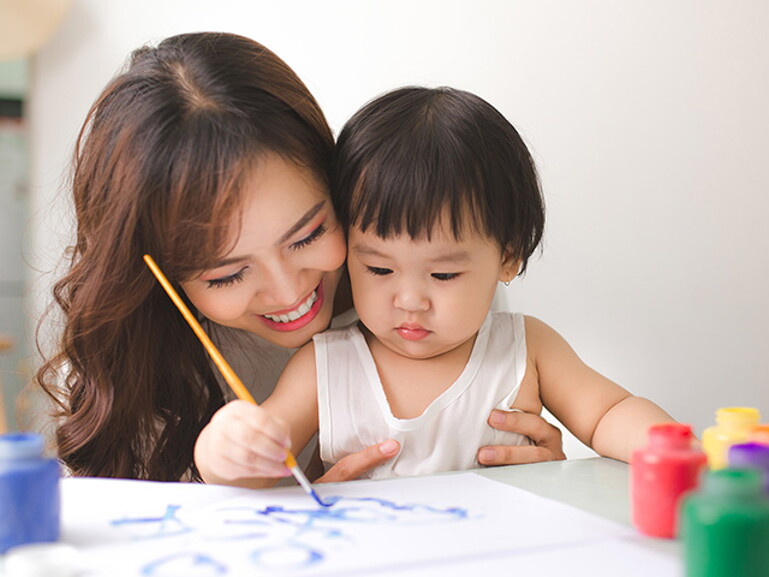Zaman Kanak-kanak
Ketahui lebih lanjut tentang susu formula kanak-kanak, keperluan nutrien dan perjalanan dalam pertumbuhan dan perkembangan mereka. Layari laman web Wyeth Nutrition ParenTeam Malaysia untuk maklumat lanjut.
Recommended content

Menetapkan nilai yang wajar
Bila anda ingin mengajar anak tentang nilai murni, interaksi bersama mereka penting untuk mewujudkan peluang tersebut. Ketahui bagaimana untuk melakukannya di dalam artikel ini.

Keselamatan di rumah
Belajar menjadi ibu bapa yang tenang jika anak anda bergerak di dalam rumah tanpa membahayakan diri sendiri atau barang-barang. Ketahui langkah atau petua rumah yang selamat.
Toddlerhood is a significant phase in a child’s development, typically spanning from 1 to 2 years old. During this exciting period, toddlers exhibit a range of new skills, personality traits, and assert their independence while staying close to their parents or caregivers. Let’s explore the key aspects of toddlerhood:
Physical Milestones:
- Walking: Most toddlers take their first steps during this time, followed by mastering stairs and running.
- Fine Motor Skills: They learn to undress themselves, use utensils, drink from cups, throw balls, and draw straight lines and circles.
- Cognitive and Communication Skills:
- Pointing to get attention and express desires.
- Saying single words (including “no”) and eventually forming short sentences.
- Understanding common objects’ purposes (phones, brushes, spoons).
- Recognizing body parts.
- Scribbling independently.
- Following 1- to 2-step verbal commands.
- Naming familiar objects and people.
- Sorting shapes and colors.
- Engaging in simple make-believe play.
Social and Emotional Development:
- Temper Tantrums: Toddlers express themselves through tantrums when their bids for independence are denied.
- Fear of Strangers: They may display fear of unfamiliar people.
- Affection: Show affection to familiar individuals.
- Pretend Play: Engage in imaginative play, such as feeding a doll.
- Defiance: Express defiance when told not to do something.
- Social Interaction: Play alongside other children and begin including them in games.
Parental Strategies:
- Promote Empathy: Encourage empathy by modeling kindness and explaining feelings.
- Conflict Management: Teach conflict resolution skills, such as sharing and taking turns.
- Household Participation: Involve toddlers in simple household tasks.
- Safety and Health: Ensure a safe environment and provide a balanced diet.
Remember that each child develops at their own pace, and milestones may vary. If you have concerns about your toddler’s development, consider scheduling a developmental screening with your pediatrician. Enjoy this dynamic phase of discovery and growth! 🌟👶🏽🌿


